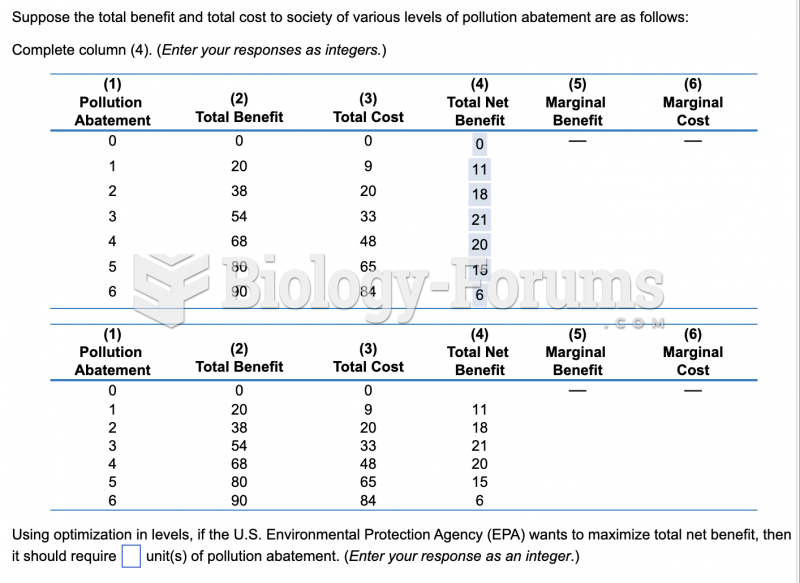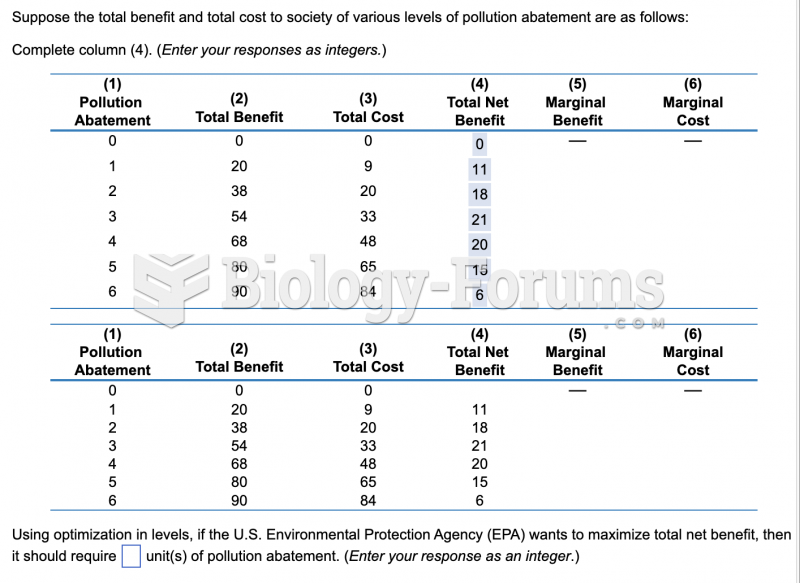Answer to Question 1
Utility companies might opt for coal-burning, rather than nuclear-power, plants because increasing safety standards for the construction and operation of nuclear power plants caused the cost of plants to increase at least fivefold, even after inflation is considered. Adding to the rise in costs is the withdrawal of government subsidies to the nuclear industry. Third, public protests frequently delayed the construction or start-up of new power plants. Such delays increased costs still more because the utility was paying interest on its investment of several billion dollars even when the plant was not producing power. Finally, safety systems may protect the public, but they do not prevent an accident from financially ruining the utility. Nuclear power plants were originally estimated to have a half-life of 40 years, but more than 100 nuclear power plants have been shut down after an average operating lifetime of 17 years. Decommissioning is an unknown cost.
Answer to Question 2
Human population is affecting natural ecosystems by increasing the environmental resistance many species face. We may change the pH, nutrient load, or salinity of water; increase the chemical pollutants in water; change the pH, salinity, or nutrient load of soil; contaminate soil with synthetic pollutants; flood or drain land; increase or decrease the chance of fire; or change local or global temperatures. Human actions tend to decrease the probability of survival for most organisms.
Typically, biotic potential is not altered by human activities. Biotic potential is the number of offspring a species may produce under ideal conditions. Humans are able to increase or decrease the number of offspring produced by domesticated species, but this is more difficult in wild species. Recruitment is not typically changed by human action. The length of childhood has been changed for humans, but we have not changed this for other species.







